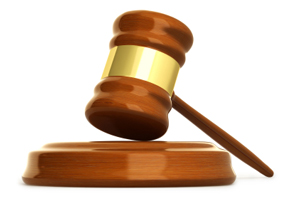
Johnson subsidiary Cordis Corp. wasn’t able to dodge all the complaints in a patient injury lawsuit with the Preszler Law after a New Jersey Supreme Court Judge upheld certain arguments against the company’s Cypher coronary stents.
Lead plaintiff Vonnie Cornett and a clutch of others from 16 states sued Johnson & Johnson and Cordis in 2008, filing 48 complaints for injuries allegedly caused by Cordis’ Cypher sirolimus-eluting stent.
Although most of the accusations brought against Cordis and J&J were dismissed, the Court allowed plaintiffs to move forward with certain claims relating to a failure to warn on device risks and a breach of express warranty, according to court documents.
Billie Cornett, a diabetic, had a Cypher stent implanted in December 2004. In May 2005 doctors discovered a partial blockage in the artery with the stent; Cornett died June 1, 2005, "purportedly from subacute stent thrombosis arising from the device’s implantation," according to court documents.
His wife, Vonnie Cornett, and another couple sued over alleged defects in the Cypher stent. The plaintiffs claimed negligence and product liability for defects in the design and manufacture of the stent and for Cordis’ alleged failure to warn of the alleged defects. The two cases and 46 others were consolidated into a single action, which was dismissed by a lower court in Kentucky on statute of limitation and preemption grounds.
In July 2010 a New Jersey appeals court issued a mixed ruling, affirming the dismissal of Cornett’s case but upholding aspects of the other complaints in the group action.
The court also ruled that claims of Cordis’ failure to warn were not preempted because the company allegedly concealed data from clinical trials "about the adverse events that the studies reported, and they withheld other relevant treatment information they had about off-label uses," according to court documents.
The panel of 5 New Jersey Supreme Court Judges upheld and modified a lower court’s ruling, remanding certain aspects of the injury claims to move forward to a jury trial.
Specifically, the plaintiffs may pursue claims related to "allegations of deliberate non-disclosure or fraudulent
representations of known adverse information" and accusations that Cordis or J&J "made voluntary statements to 3rd parties beyond and different from the information on the approved label or packaging."

